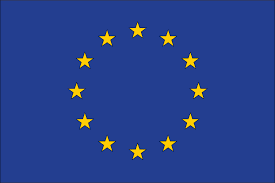Chemycal has been acquired by 3E
Learn MoreChemycal has been acquired by 3E
Learn MoreDiscover how Chemycal PRO helps you boosting your regulatory monitoring:

Title of document
Proposal for a Regulation of the European Parliament and of the Council concerning batteries and waste batteries, repealing Directive 2006/66/EC and amending Regulation (EU) No 2019/1020 (COM(2020)798) (130 page(s), in English; 28 page(s), in English)
Description
This draft Regulation concerns sustainability, safety, labelling and information requirements for the placing on the Union market of batteries as well as due diligence requirements for economic operators and requirements for the end-of-life treatment of waste batteries.
The product requirements concern specifically: restrictions of hazardous substances (all batteries), reporting, labelling and - to be specified by subsequent legislation - maximum level of carbon footprint over the life cycle (electric vehicle and industrial batteries), minimum level of recycled cobalt, lead, lithium and nickel (automotive, electric vehicle and industrial batteries), performance and durability (portable, electric vehicle and industrial batteries), removability and replaceability (portable batteries), safety (stationary battery energy storage systems), labelling (all batteries), information on the state of health and expected lifetime (electric vehicle and industrial batteries), and a battery passport (electric vehicle and industrial batteries).
It further contains a requirement for the economic operators that place electric vehicle and industrial batteries on the EU market to establish supply chain due diligence policies with regard to the sourcing of cobalt, natural graphite, lithium and nickel, and chemical compounds based on these necessary for the manufacturing of the active materials of batteries.
The requirements for the end-of-life management of batteries include: registration by producers, extended producer responsibility, collection of waste batteries, requirements related to treatment, recycling, repurposing and remanufacturing, providing end-of-life information, and reporting to competent authorities.
Notifying member: European Union
Notification: G/TBT/N/EU/775
Objective tag
Protection of the environment
Objective
Batteries are an important source of energy and one of the key enablers for sustainable development, green mobility, clean energy and climate neutrality. In order for the EU’s product policies to contribute to these objectives, it needs to be ensured that batteries marketed and sold in the Union are sourced and manufactured in a sustainable manner. Addressing the entire life cycle of batteries placed on the EU market requires the setting up of harmonised product and marketing requirements, including conformity assessment procedures. The proposed supply chain due diligence policy aims to address the social and environmental risks that can be associated to the extraction, processing and trading of certain raw materials for battery manufacturing purposes. The increased use of recovered materials would support the development of the circular economy and allow a more resource-efficient use of materials. Ensuring a low carbon footprint of batteries addresses the fact that climate change is the second largest environmental impact for the life cycle of batteries (after the use of minerals and metals) and is necessary to ensure that the Union’s objective to decarbonise the mobility and energy storage sectors is achieved, in line with the internationally agreed objectives on climate change.
Further, batteries should be designed and manufactured so as to optimise their performance, durability and safety. The use of hazardous substances in batteries should be restricted in order to protect human health and the environment and to reduce the presence of such substances in waste.
Requirements concerning the end-of-life stage are necessary to address the environmental implications of the batteries and to support the creation of recycling markets for batteries and markets for secondary raw materials from batteries in order to close the materials loops.
In order to better reflect new developments in the use of batteries, the proposal distinguishes between different categories of batteries in accordance with their design and use, independent of the battery chemistry. This classification is used to apply certain requirements only to those market segments of batteries that will have the most impact on the sustainability aspects concerned. It also facilitates monitoring of collection and recycling of different types of batteries.
Documents
Agency responsible
European Commission
Timing:
2013 © MyChemicalMonitoring. ALL Rights Reserved. About Us | Terms and Conditions